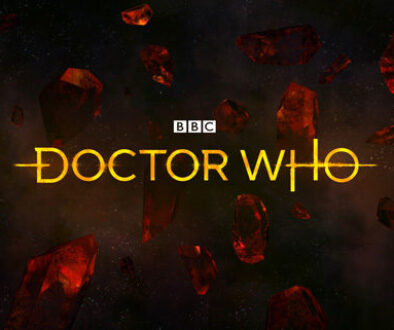“The Witchfinders” Review – Muddied by Its Ambition
Clint Hassell gives his spoiler-filled commentary on the eighth episode of Doctor Who Series 11.
Note: this review contains full SPOILERS for episode 8 of Series 11.

To her credit, Joy Wilkinson certainly thought about what she wanted to say with her script for “The Witchfinders.” An examination of bullying, gender roles, and religious faith, some sly political commentary, and a character study of King James – – the episode attempts to do it all. Unfortunately, Wilkinson struggles to service all of the topics presented, leaving a frustrating amount of material unexplored.
The main point of “The Witchfinders” is that bullies attain power by taking the first, offensive action. When Becka Savage feels that the Doctor is close to realizing the truth of her possession, she preemptively accuses the Doctor herself of being a witch. The Doctor realizes this tactic, decrying, “That’s what you’re doing: pointing the finger at other people so that no one points it at you.”
Curiously, the episode doesn’t examine the converse behavior: mob mentality, where individual members of large groups are reticent to stand up to bullies for fear of being themselves singled out. Surely, someone realizes the unfairness of the criteria behind witch dunking, yet no one says anything. Yes, Willa caves under peer pressure, stating, “I can’t stand up to Becka. She’ll have me tried for a witch,” but that scene does more to explore the psychosomatic effects of bullying on Willa’s health (along with revealing that Yaz was bullied as a teen, an opportunity for character development the episode ignores).
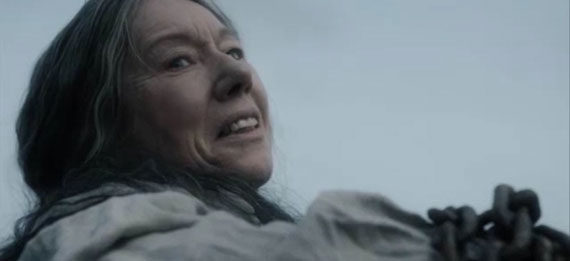
“The Witchfinders” does make use of its period setting to address that, while the Doctor’s recent change in sex has not wildly affected her personality, it will, in certain historical eras, affect how she is perceived. The episode mines this in its cursory examination of gender roles, as the Doctor laments, “Honestly, if I was still a bloke, I could get on with the job and not have to waste time defending myself.” Rather than spending its running time demonstrating the many ways that women were considered inferior, “The Witchfinders” makes use of its main character being from the relative future to voice an effective, prescient argument for communication as a means to equality:
Lady Savage: “Do you know why the dunking stool was invented, Doctor? To silence foolish women who talk too much.”
the Doctor: “Yeah, I did know that, which is daft because talking’s brilliant. Like, if you talk to me now, I can help.”
Still, the plot of “The Witchfinders” seems to undercut its own arguments regarding gender roles, as Lady Savage is unquestionably in charge. Despite her statement, “I have tried to be a benevolent leader, but it’s very difficult in these times, especially for a woman,” the episode pointedly shows that she is a landowner, with the resources and authority to put 36 people to death. Further, while it is telling that King James’ idea of what a woman is capable of is so ingrained that it alters the psychic paper’s message, the episode makes little note of it – – it’s merely the plot point that establishes the Doctor acting as the witchfinder’s assistant to Graham. Weirdly, the Doctor doesn’t argue against James’ prejudice, even when he refers to a woman’s “innate aptitude for nosiness and gossip.”
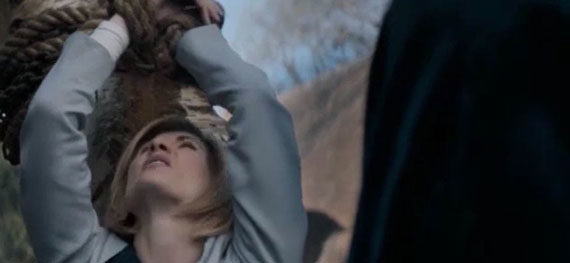
“The Witchfinders” seems torn on its examination of religious faith. While the subject is mined for tension – – it is truly unnerving for Ryan to counter Lady Savage’s arguments with logic, only for her to be unyielding in her faith – – just as the episode seems to posit that religious faith is dangerous, the Doctor counters with “Love thy neighbor” from the New Testament. It’s not doctrine itself that is dangerous, but the unthinking adherence to it . . . but, is not blind faith an aspect of religious practice? Sadly, the episode treads no further into this debate.
Rather, the episode exemplifies the one-mindedness of religious rhetoric by referencing Satan an annoying 38 times, without offering any evidence of his involvement. Why, exactly, are horses “creatures of Satan”? How do witches being the “devil’s acolytes” lead to the “blighting [of] crops, bewitch[ed] animals, [and the] plaguing [of] people with fits, sickness, and visions”? “The Witchfinders” offers no explanation. Despite the repeated mention of his name, the audience never actually believes Satan might be connected, undercutting the episode’s tension. Instead of hinting at a truly supernatural explanation, causing the audience to question Doctor Who’s normal, sci-fi leaning, before revealing the true nature of the alien mud – – think Series 7’s masterful “Hide” – – “The Witchfinders” only suggests the arcane once, as Willa offers some of her grandmother’s “special tea” to a reticent Yasmin.
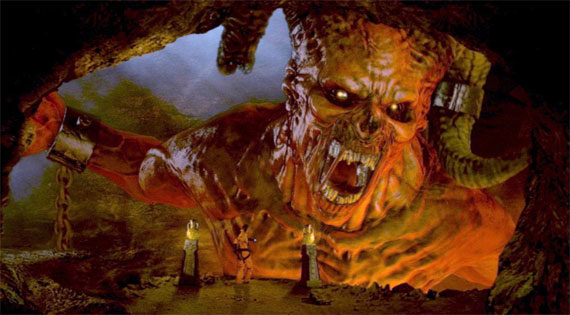
“The Witchfinders” does offer a sly bit of commentary, with its message that zealots can cover their fanaticism by distracting their more simple-minded followers. Lady Savage throws a weekly fair so that the villagers do not rebel against the witch trials. Modern politics does the same thing. Don’t like how the news media is spinning your latest policy? Distract them with accusations of your opponent’s corruption! The political connotation here is savvy, and especially noticeable upon a second viewing.
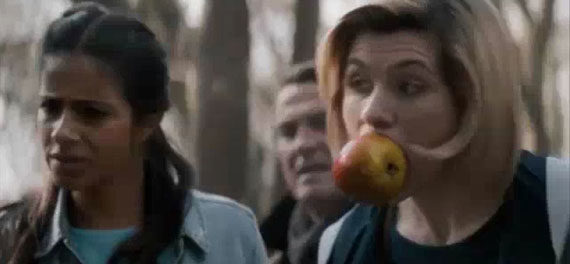
It seems clear that Wilkinson also wanted to include an insightful examination of King James, but fails almost completely in this regard. James’ overwhelming paranoia is played exclusively for laughs, with little attempt to tie James’ sense of righteousness to his notion that God has thus far protected him, so he must be doing God’s work. Rather, it feels like King James was included less to demonstrate the levels of fear and persecution in the era – – thus furthering the “humanity is the real evil” theme that has defined both Series 11 and Chris Chibnall’s run on Torchwood – – and more to teach everyone that James exhibited homosexual behaviors.
In fact, it is the appearance of the foppish King that signals the first of many problematic tonal shifts in “The Witchfinders,” the music abruptly swinging to a jaunty, whimsical tune to highlight the change. What does this episode strive to be? A somber period drama? A body horror-tinged, supernatural thriller? A British pantomime? A sci-fi invasion epic? A Graham-and-Ryan buddy comedy? Neither the direction nor the actors offer any clues. Siobhan Finneran’s Lady Savage is haughty and overwrought; Alan Cumming’s King James is an effete dandy. Both wildly overact, but not in the same way, as if the two characters were meant for different episodes. Worse, King James’ portrayal is inconsistent throughout the story. The scene where the Doctor accuses James of “killing, and scapegoating, and stirring up hate” is counter to Cumming’s previous jovial, comedic portrayal. He’s practically a different character, here.
The episode’s tonal issues are most prevalent in the scene where the Doctor defines the mud creatures as “more like something from the heavens” – – because she thinks they are aliens – – and as “something beyond [James and Savage’s] understanding.” The Doctor doesn’t realize that she has inadvertently insulted their intelligence and their religion, but, rather than tying this to the two accusing the Doctor of being a witch, the episode goes for a(n admittedly very funny) joke: “Why does the lassie speak of commerce?”
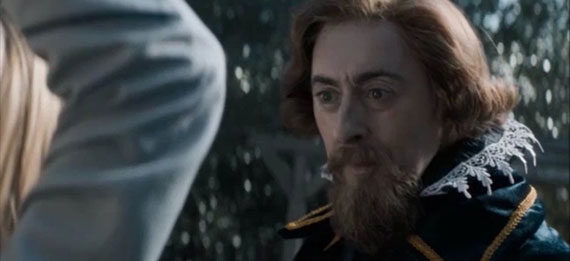
Perhaps the thing “The Witchfinders” accomplishes best is pointing out that, should the series continue to stress the importance of historical episodes – – and here’s hoping it does! – – the narrative is going to have to come up with a better way to deal with the future technology and foreknowledge that the Doctor and her companions possess. Referencing the sonic screwdriver as a “magic wand” is a subtle nod to previous series, where the sonic became a storytelling crutch/catch-all plot device. Of course, the sonic would seem like magic to Willa and King James! Why wouldn’t it? By pointing out that the Doctor and her companions do stand out in a historical setting – – be it their style of dress, modern beliefs, assured knowledge of future events, seemingly magic technology, or their ethnicity – – the episode recognizes that the methodology of a historical episode needs to differ from a modern-day or future-set adventure.
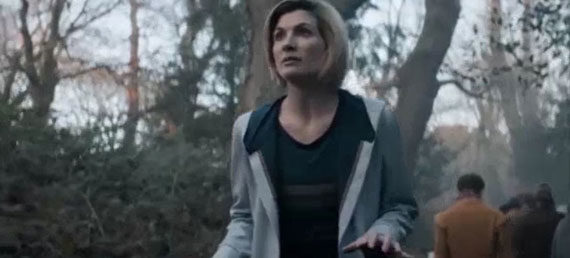
To its credit, “The Witchfinders” does attempt a competent resolution to the Morax threat. It is certainly preferable to have an overly ambitious, imperfectly executed episode than one lacking original ideas. Still, Joy Wilkinson’s episode is the shortest of Series 11, by several minutes. Perhaps utilizing some of that time to further explore some of her many ideas would have resulted in an episode that felt less tonally dissonant or haphazard in its commentary.
Random Musings
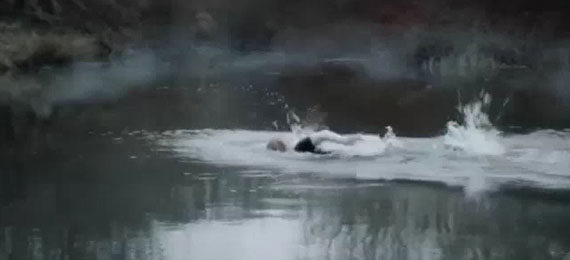






(Time) Capsule Review
Overly ambitious, “The Witchfinders” tries to comment on bullying, gender roles, religious faith, and modern politics, while also reminding the audience that King James wasn’t religiously heterosexual. Pulled in too many directions, the episode only provides cursory examinations of its subject matter. Further, the episode is wildly uneven in tone, with Lady Savage and King James acting like characters from a serious, period drama and a holiday panto, respectively.





